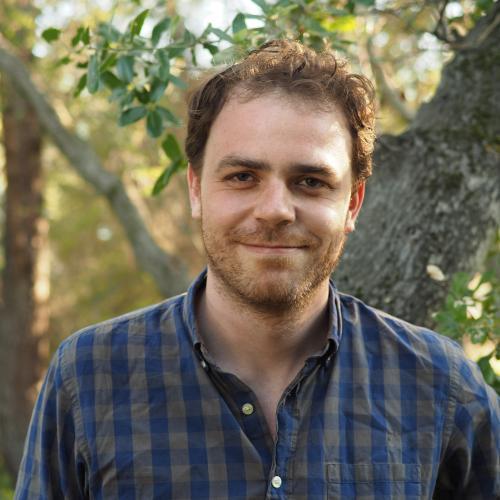Sam Lasman works on medieval literature as well as modern medievalism, with a focus on how narrative texts use the supernatural, monstrous, and parahuman to explore identity and communal origins. He works primarily in languages including Welsh, Middle English, French, Persian, and Arabic. He also has some working knowledge of other languages, including Old Norse, Irish, Old English, Latin, and Middle Persian.
His current book project, Parahuman Pasts: Monsters, Strangers, and Time in Medieval Narrative, argues that the uncanny beings who populate medieval stories about the past allow storytellers to express human relationships to the nonhuman forces of history. Three case studies--on giants (cewri) in Welsh prose tales, monsters (azhdahā) in Persian verse epic, and the otherworldly lovers of Old French lais--analyze distinct articulations of the parahuman across three different cultural contexts of the 11th and 12th centuries. Together, these constitute a global Middle Ages as a set of identity-building projects occurring in parallel across a decentralized yet interlinked world.
He also holds a fellowship from the American Council of Learned Societies (ACLS) for research on a second project, "Colonizing the Otherworld: Scientific Racism and the Medieval Parahuman." This analyzes how writers in the nineteenth and twentieth centuries interpreted premodern narratives of supernatural beings as accounts of ancient racial conflict and conquest. Emerging at the intersection of historical linguistics, medieval studies, folkloristics, anthropology, and racial pseudoscience, these euhemeristic approaches coopted medieval texts into imperialist endeavors, rewriting the past in colonialist terms. While these theories eventually passed out of academic respectability, modern popular culture--including fantasy literature, gaming, and cryptozoology--remain indebted to them.
Dr. Lasman has written articles and book chapters on topics including the performance of Arthurian narrative, time travel in medieval Wales, medieval fictionality, the Persian Alexander Romance, and comparative approaches to medieval British and Persian literature. He also writes fiction, and is an alumnus of the Clarion Science Fiction and Fantasy Writers' Workshop. More information about his work and teaching can be found on his website.
Back to Top

